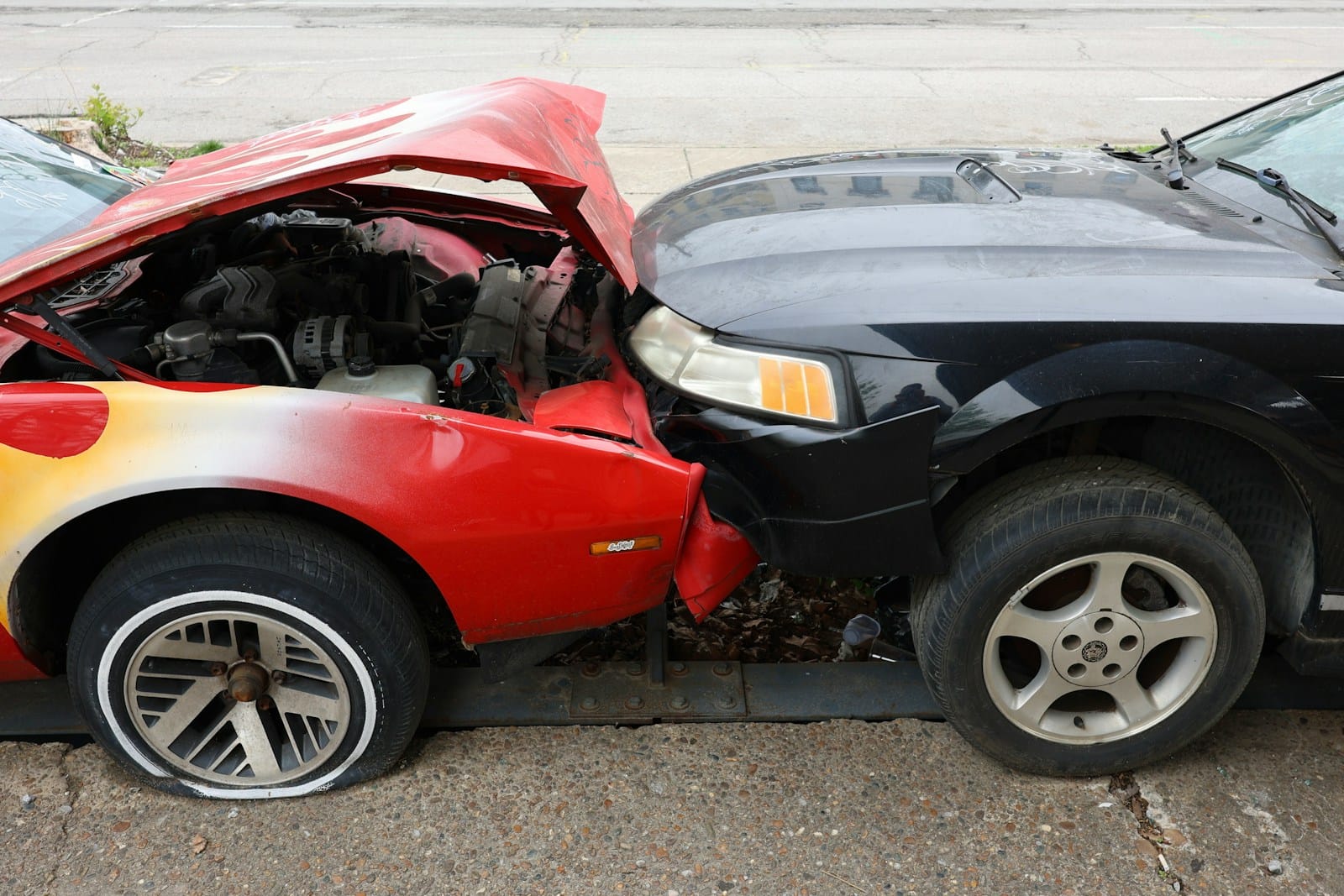So, you’ve had an auto accident. Whether it was a fender-bender in the grocery store parking lot or a more serious crash on the freeway, one thing is clear: you’re dealing with a lot.
Your car is dented, your body’s sore, and your insurance company has already sent you their “helpful” list of instructions. But how do you make sure you’re getting what you’re truly entitled to? Getting compensated fairly for an auto accident claim is a tricky business, but with a little know-how, you can maximize that payout. And let’s face it: you deserve it.

Top Takeaways and Key Concepts
Understand Your Coverage: Review your auto insurance policy to know liability, collision, and uninsured motorist protections.
Report the Accident Immediately: Notify police and your insurance company promptly to strengthen your claim credibility.
Document Everything: Take photos, gather witness info, and keep detailed records of injuries and damages.
Avoid Quick Settlements: Don’t accept early insurance offers; evaluate all costs, including future medical bills and lost wages.
Consult an Attorney: A personal injury lawyer can negotiate, appeal denied claims, and ensure fair compensation.
Summary of This Article
The article guides readers on maximizing auto accident compensation by emphasizing understanding insurance coverage, promptly reporting accidents, and meticulously documenting damages and injuries. It warns against accepting quick settlements, highlighting the need to account for medical expenses, lost wages, and emotional impact. Consulting a personal injury attorney is recommended to navigate claims, negotiate settlements, and appeal denied claims. Following these steps ensures victims are fully compensated for financial, physical, and emotional losses resulting from an accident.
Please Note: This post may contain affiliate links. If you click one of them, we may receive a commission at no extra cost to you. As an Amazon Associate, I earn from qualifying purchases.
Navigating the world of auto accident claims isn’t like reading a user manual for your new TV. Oh no, it’s much more complicated and, at times, downright frustrating. So, grab a snack and settle in because we’re diving deep into the ins and outs of maximizing your auto accident compensation.
After all, this isn’t just about getting your car fixed; it’s about getting what you deserve, and possibly getting the insurance companies to pay up. Let’s go!
Understanding Your Auto Accident Coverage

Before you start thinking about suing someone or negotiating with insurance adjusters, you need to understand the type of coverage you have. Seriously, take a moment to dig through your insurance policy, and no, I’m not just talking about glancing at the bill and rolling your eyes.
Do you have liability coverage? Uninsured motorist coverage? Collision and comprehensive? Understanding your policy is the first step in ensuring you get compensated fairly.
By the way, if you’re thinking “I don’t even know what’s in my policy,” that’s a red flag. You could be missing out on a type of coverage that could help you recover more from your claim. If you don’t have sufficient coverage, you could end up paying out-of-pocket for things like medical bills, lost wages, or car repairs. And trust me, nobody wants that.
Report the Accident Immediately

After an accident, it’s crucial that you report the incident to the police and your insurance company as soon as possible. I know, this is the point where some people think, “Why do I need the police? It’s just a minor accident!” But here’s the thing: a police report can be a game-changer when it comes to proving your case. Without it, you might find yourself stuck in a “he-said-she-said” situation. And let’s face it, that’s never a good look.
Honestly, waiting too long to report an accident can be a huge mistake. It can make your case look less credible to the insurance company. The sooner you get that report filed, the better your chances of a higher payout.
Document Everything (Seriously, Everything)
Now, this is where most people drop the ball. You might be feeling frazzled after an accident and just want to get it over with, but hold up! You need to document everything, and I mean everything. Start by taking pictures of the scene, the vehicles involved, any injuries, and any damage. The more detailed you are, the better your case will look down the line.
Here’s an example: I once had a friend who was in a pretty serious crash. The other driver tried to claim that the damage was her fault, but luckily, my friend had photos showing the skid marks, traffic light timing, and the whole nine yards. That’s what got her the compensation she deserved.
Don’t Settle Too Quickly
If you’ve ever received an offer from your insurance company right after an accident, you’ve probably been tempted to just take the check and move on. But here’s the thing: insurance companies love quick settlements because they’re cheaper. They’re not exactly out to make sure you’re financially whole again; they’re just trying to save themselves some money.
Honestly, if you’re still injured or if the damage to your car is more than you originally thought, don’t rush into accepting the first offer. Take your time, do some research, and consult a lawyer if necessary. You could be leaving money on the table by settling too soon.
Keep Track of Medical Bills and Lost Wages
One of the things insurance companies don’t always account for upfront is the long-term impact of your injuries. Sure, they might offer you money for your immediate medical bills, but what about the future? If you’ve missed work or if you’ll need ongoing therapy, those costs should also be factored into your claim. So, keep a detailed record of everything—doctor’s visits, physical therapy, medications, and, of course, those lost wages. It all adds up.
Speaking of which, did you know that some people forget to account for the emotional and psychological toll an accident can take? It’s true. And you may have the right to claim for that as well. Don’t let insurance companies downplay your experience.
Consult with an Attorney
This is where some people get a little hesitant. The thought of hiring an attorney can feel like opening a can of worms, but trust me on this one: it might be the best move you make. A personal injury lawyer can help you navigate the often murky waters of insurance claims, negotiate better settlements, and even take your case to court if necessary.
Interestingly enough, most personal injury lawyers work on a contingency basis, which means they only get paid if you win your case. So, really, it’s a risk-free investment. They’ll handle the heavy lifting, leaving you with more time to focus on your recovery—and maybe a little less frustration in the process.
Appeal a Denied Claim
If your insurance claim gets denied (and, spoiler alert, it happens more often than you think), don’t panic. You have options. Most insurance companies allow you to appeal their decision. This is where your documentation comes in handy. Provide any additional evidence that can help your case, and make sure you’re clear on why your claim should be approved.
Then again, if you’re not getting anywhere with the insurance company, it might be time to escalate things. Contact an attorney, file a complaint with your state’s insurance commissioner, or even take legal action. Trust me, if your claim was wrongfully denied, you have the right to seek compensation.
Final Thoughts: Don’t Settle for Less
Maximizing compensation for your auto accident claim might feel like a slow, uphill battle, but the rewards are worth it. Don’t be afraid to stand your ground. Document everything, take your time, and get the legal help you deserve. After all, it’s your money, your future, and your car that’s on the line. Make sure you’re fully compensated for everything you’ve been through.
Resources
Understanding Auto Accident Claims
https://www.nolo.com/legal-encyclopedia/auto-accident-claims.html
How to Maximize Your Auto Insurance Claim
https://www.allstate.com/tr/blog/maximize-auto-insurance-claim.aspx
Navigating Insurance Claims After an Accident
https://www.progressive.com/claims/navigating-insurance-claims/
Frequently Asked Questions
What steps should I take immediately after an auto accident?
Report the accident to the police and your insurance company right away. Prompt reporting strengthens your credibility and creates official documentation for your claim.
Why is understanding my insurance coverage important?
Knowing your policy’s coverage types—like liability, collision, and uninsured motorist—helps you identify what compensation you’re entitled to and prevents overlooked benefits.
How can documentation affect my accident claim?
Thorough documentation, including photos, medical records, and witness statements, provides strong evidence to support your claim and maximize potential compensation.
Should I accept the first settlement offer from the insurance company?
No. Early offers are often lower than you deserve. Wait until all damages and medical costs are clear before negotiating or consulting a personal injury attorney.
What expenses should I track after an accident?
Keep records of all medical bills, therapy sessions, lost wages, car repairs, and emotional distress. These details help calculate full and fair compensation.
Do I need a lawyer for an auto accident claim?
While not required, an attorney can negotiate higher settlements, handle appeals for denied claims, and ensure your rights are protected throughout the process.
What can I do if my insurance claim is denied?
You can appeal the decision by submitting additional evidence, contacting your state’s insurance commissioner, or consulting an attorney for legal recourse.

Kevin Collier is a legal expert passionate about simplifying complex legal concepts for everyday individuals. With a focus on providing clear, practical information, he covers a wide range of topics, including rights, responsibilities, and legal procedures. Kevin aims to empower readers with the knowledge they need to navigate the legal landscape confidently, ensuring they can make informed decisions regarding their legal matters. Through insightful articles and easy-to-understand resources, he helps demystify the law, making it accessible to all.










